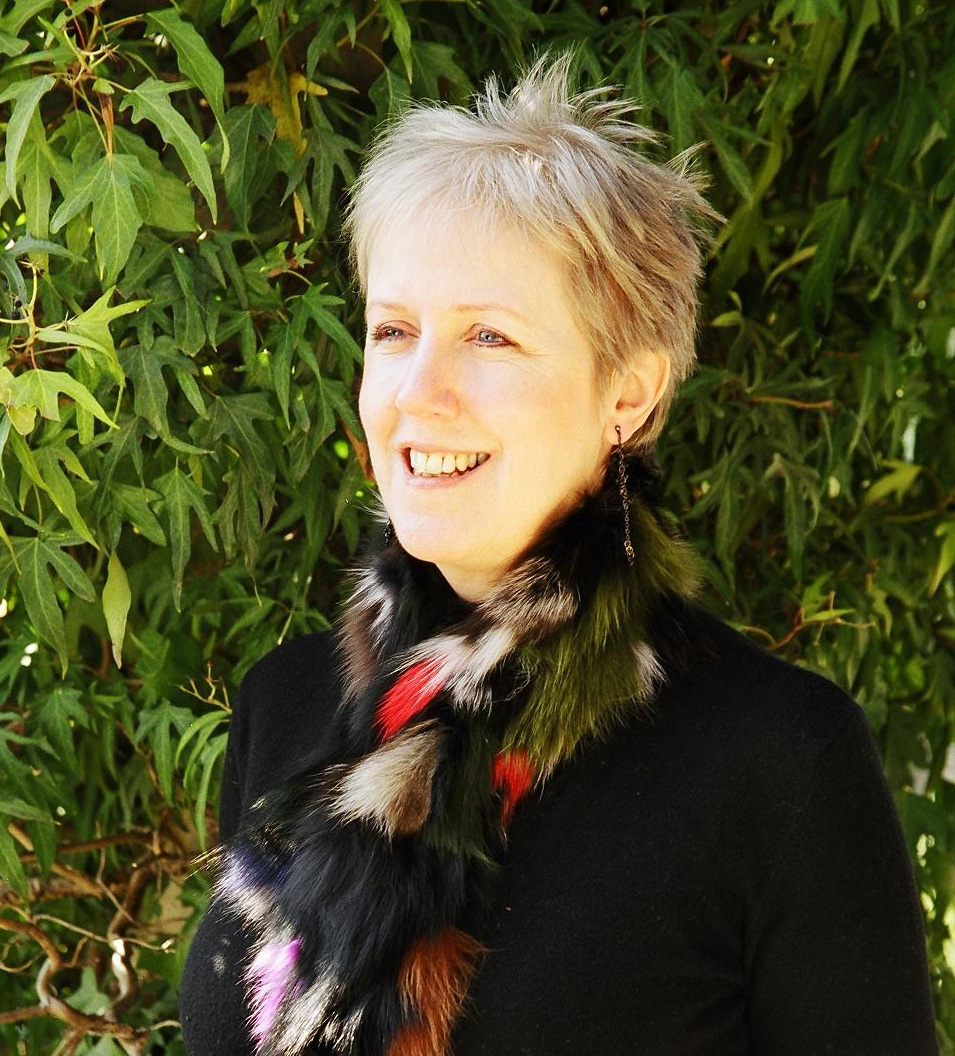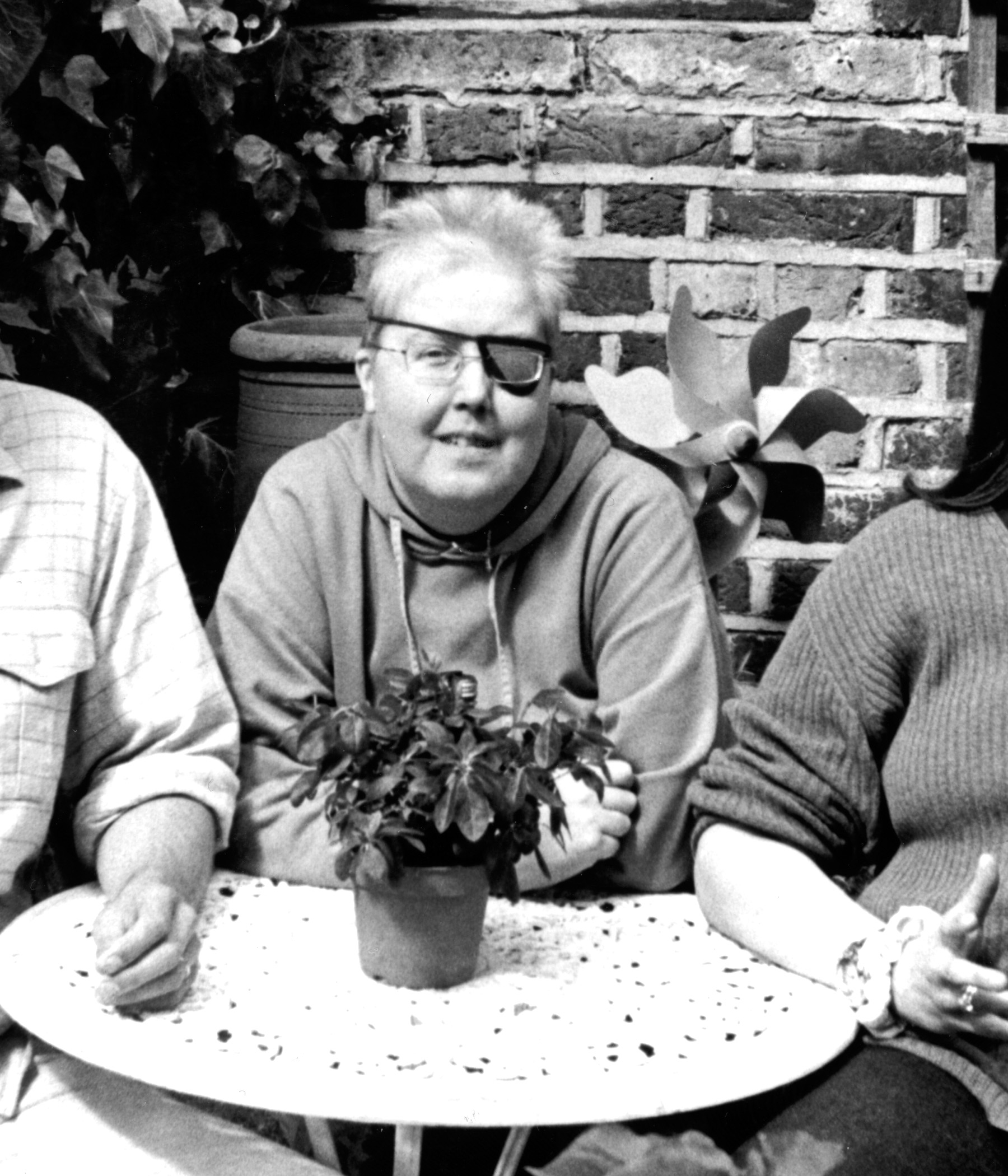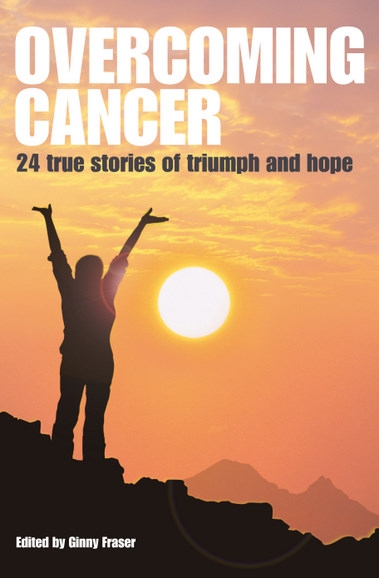
Ten years ago Ginny Fraser was given six months to live after being diagnosed with stage IV melanoma – a deadly form of skin cancer. She recovered against the odds, and now provides a coaching service to help other people diagnosed with cancer.
Her book Overcoming Cancer: 24 Stories of Triumph and Hope is available now.
I was first diagnosed with malignant melanoma, the most dangerous form of skin cancer, back in 1994. I had the mole on my arm removed, and I then ignored – or rather denied - the seriousness of the situation and got on with my life. Nearly three years later the cancer recurred – it had spread to some of the lymph nodes under my arm. I had them removed and this time I took it seriously.
As I was lying in hospital after the operation, two friends separately gave me a book called A Time to Heal by Beata Bishop about her healing her own melanoma with a serious dietary regime called The Gerson Therapy. The doctors didn’t really have much else to offer me as melanoma was pretty resistant to the chemotherapies available at the time, so I decided to give it a go. I knew I needed to treat the cause of my illness, and not just the symptom, ie. the tumour.
The Gerson Therapy involved 13 vegetable juices and five coffee enemas per day - yes, five! It was a huge undertaking, but I was inspired by Beata’s story and the track record the therapy had with melanoma, so I wanted to give it a go. Its purpose was to detoxify the body, and support the immune system to do the job it is designed to do.
I actually enjoyed doing the therapy once I had surrendered to the discipline involved in it. There are some very strict rules – for example no chemicals in any form, so make-up and hair dye were out. I hated that part, but got creative with beetroot juice for blusher which helped a bit!
I hadn’t actually felt ill at any point with the cancer, so there was no great sense of recovery from doing the therapy. However, it was the first time in my life that I had put my health and well-being ahead of everything else – and I think that was a potent message for my consciousness and self-worth.
After the 18 months on The Gerson Therapy I went back to my regular life, which involved flying around the world delivering training courses in places as diverse as Siberia and Brazil. It was an exciting way to live, but perhaps not very conducive to a healthy immune system, which I clearly needed!
I really thought that cancer was behind me then but five years later, in 2001, the melanoma returned. This time it was in my brain, lungs, spleen and stomach, and I was given the scary prognosis of six months to live. My options were limited. I knew that chemotherapy didn’t really work for melanoma, and The Gerson Therapy clearly hadn’t done the trick for me.
I now know that nowadays the power of The Gerson Therapy is greatly reduced from when it was first used some 70 years ago. Our bodies are way more toxic, and the vegetables that are the cornerstone of the therapy don’t have the nutritional goodness they used to have – despite being organic – as our soils are so depleted. However, its principle of detoxification to allow the immune system to do its job is the foundation for many newer therapies, like the one I eventually opted for.
With the help of friends scouring the internet, I eventually found an extraordinary integrative oncologist, Dr Etienne Callebout. (An integrative oncologist combines the best traditional allopathic medicine with the best alternative approaches.) He put me on another strict regime, this time with up to 122 supplements a day – plus the obligatory juices and enemas (only two a day now!) and various other practices such as Epsom Salts baths.
Dr Callebout uses a range of sophisticated diagnostic tests to check the endocrine (hormone) system, genetic aspects, angiogenesis (the way a tumour can create its own blood supply), ability of the system to detoxify and more. His treatments include nutritional therapies, hormone correction, deep detoxification, immune stimulation and various other therapies individually tailored to the client. The intention of any therapy such as this is to detoxify and re-balance the system naturally to encourage the immune system to do its job. So the principle is the same as the Gerson Therapy, it is just a more sophisticated approach to address the greater toxicity in our systems in these modern times.
I also had radiotherapy to my brain, which I chose to do as frankly I was scared. I was having visual disturbances
Amazingly, the tumours really responded and started to recede very quickly. The brain tumours and those within my body reduced really quickly. Whilst the impact on the brain could be attributed to the radiotherapy, when the tumours in my body started to recede with no conventional treatment, the doctors started talking about “spontaneous remission”. (In other words, “We don’t understand this - and it couldn’t possibly be any of that other stuff you’re doing - so this is our explanation”!)
Within a year, I was pretty much clear of cancer. I also did a lot to supplement the dietary regime, including working on old emotional patterns and beliefs. I also asked for and received all kinds of spiritual assistance, including being prayed for by people of all religions and traditions. In my experience, prayer really works – and you don’t even have to believe in it! I’ve written an article about prayer and healing in ICON - Integrated Cancer and Oncology News, (www.canceractive.co.uk).
After what seemed like a pretty amazing recovery I knew I needed to use my experience in some way. As my profession before I got ill was coaching, I decided to set up CancerCommunicate, offering coaching to people with cancer on all the aspects of dealing with the disease. In the coaching we look at the physical side of things first, and often people have very little awareness of the choices they have in terms of treatment; we then look at the emotional and spiritual aspects of getting a cancer diagnosis. Hearing you have a life-threatening illness and dealing with all the fears it provokes, means that there is often a real need to talk to someone outside the family circle about all the turmoil that can be going on.
It is also a time when old patterns and unhelpful beliefs come up, and people tend to be drawn into examining how they have lived their lives thus far. Often people choose to make big changes to the way they approach life – giving more time for self, allowing more freedom of expression, bringing in more compassion for self, for instance. Coaching also helps people develop a calmer perspective on their disease. It teaches ways to manage the fears, and to seek the benefits that such introspection can reveal – like deeper self awareness or a more open heart.
As I mentioned earlier, I write for ICON magazine and through this I collected the 24 stories that make up a book called Overcoming Cancer. It seemed an important project, because it isn’t often that you hear a story of someone with cancer that has a happy ending. And that isn’t because they don’t exist. Generally, people who survive get better and then get on with their lives.

It does sound like a dreadful cliché, I know, but the truth is that many of the writers in the book - including myself - found a blessing in their illness, or perhaps I should say, their recovery. For myself, to look at death as a real - even likely – possibility, and emerge from that meeting to live another day, is a profound experience not many of us get, but for which I am hugely grateful.
For a start, it forced me to look at what I really believed about death and my spiritual beliefs. What was really true for me and what were just received beliefs? I found that there were some things inside me that seemed to be truths and that was deeply reassuring. I also healed more of the habit of self-judgment and self-criticism – that way of thinking cannot have been good for my immune system - and I am kinder to myself. There is always more to do on that one (!) but cancer really helped – strange though that may sound!
Overcoming Cancer: 24 true stories of triumph and hope is available from the charity CancerACTIVE at www.canceractive.com.
Ginny can be contacted via www.cancercommunicate.co.uk or This email address is being protected from spambots. You need JavaScript enabled to view it..
Dr Etienne Callebout can be contacted at This email address is being protected from spambots. You need JavaScript enabled to view it.">'+addy_text7564+'<\/a>'; //--> .
